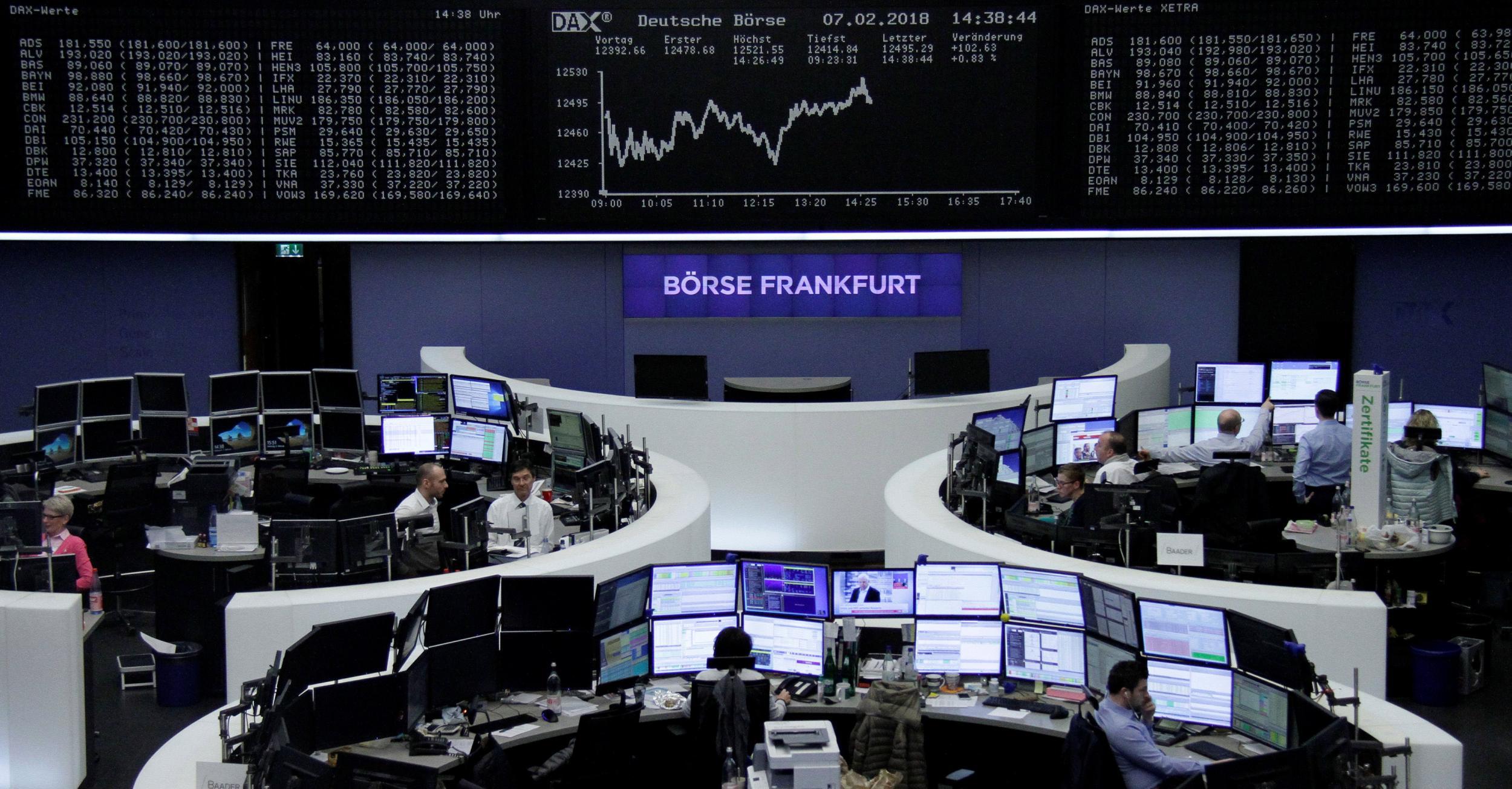The Independent's journalism is supported by our readers. When you purchase through links on our site, we may earn commission.
Stock markets: What is algorithmic trading? And is it really responsible for the current financial mayhem?
What are these trading computers? And are they really to blame for the stock market falls we’re seeing?

The US stock market is in official “correction” territory after Thursday night’s falls, meaning share prices are more than 10 per cent down on their recent peaks.
And some are blaming computers and “algorithmic trading”, rather than flesh-and-blood market participants, for these hefty stock sell-offs.
But what is algorithmic trading? And is it really to blame for the market correction?
What is algorithmic trading?
An increasing number of asset managers use computer programs to buy and sell shares automatically.
A type of hedge fund known as a “quant” often adopts this automatic trading technique. The value of assets managed by quants passed $1 trillion (£725bn) this year.
The decisions made by these machines are based on algorithms, derived from a statistical model. The computers monitor when shares are undervalued or overvalued, according to the model, and trade accordingly.
There has also be an explosion in “high-frequency trading” in recent years, where investment banks and hedge funds use powerful computers to transact orders, often automatically, at extremely high speeds and thus gain an advantage over other market participants.
How would that lead to volatile trading?
Some claim that when prices fall, algorithms and high-frequency trading can accentuate declines because machines all automatically respond to the falling price by selling themselves.
The argument is that the machines fail to apply human common sense to share valuations.
During the massive sell-off of US stocks on Monday 5 February, when the Dow Jones sank by 4.6 per cent, there was a 15-minute period when prices fell extraordinarily rapidly.
“The drop in the morning was caused by humans, but the free-fall in the afternoon was caused by the machines,” Walter Hellwig of BB&T Wealth Management told Bloomberg earlier this week.
The US Secretary of the Treasury, Steve Mnuchin, has similarly claimed that computerised trading “definitely had an impact” on share price drops.
What do the authorities say?
On 7 October 2016 the pound fell by 9 per cent against the dollar in seconds in overnight trading.
An investigation by the Bank for International Settlements (BIS) did find that “automatic stop-loss orders” were a factor contributing to the “flash crash”.
An official report on a massive, but temporary, crash in American equity markets on 6 May 2010 by the US Commodity Futures Trading Commission and the US Securities and Exchange Commission likewise found that automated trading was a contributing factor.
“The automated execution of a large sell order can trigger extreme price movements,” it concluded.
Does everyone believe it?
Some are sceptical, at least in this instance, seeing “the computers” as perhaps a convenient scapegoat for human asset managers who bid share prices beyond what the economic fundamentals warranted, and thus created a bubble that was bound to pop at some point.
The BIS report into the sterling flash crash also concluded that sell orders from human traders, some of them inexperienced, were partially responsible for the massive slump in the currency’s value.
Some academics have even argued that algorithmic trading can act as a stabilising force in markets, providing liquidity and pushing prices back up to more sensible valuations when they are sent down too far by emotional flesh-and-blood traders.
Join our commenting forum
Join thought-provoking conversations, follow other Independent readers and see their replies
Comments
Bookmark popover
Removed from bookmarks